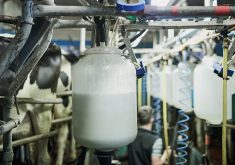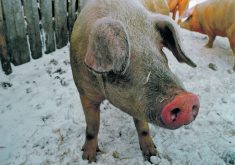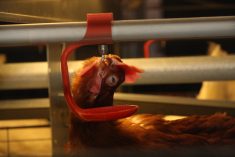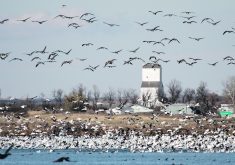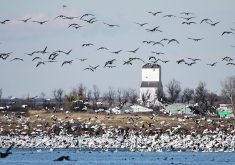Canadian Egg Industry Reciprocal Alliance is one of the organizations that will benefit from a new federal gov’t program
Cases of avian influenza have subsided, but the disease is still being detected with the latest case found on a commercial operation in Alberta’s Stettler County late last month.
In response to the effects of the bird flu, Agriculture Canada announced more than $1 million in funding to help protect farmers against poultry disease outbreaks.
The Canadian Egg Industry Reciprocal Alliance (CEIRA) is one organization receiving more than $400,000 to ensure the producer-owned group continues to be viable.
CEIRA is one of the few organizations to offer insurance products for avian influenza and started offering coverage nationally in 2018.
Read Also

New coal mine proposal met with old concerns
A smaller version of the previously rejected Grassy Mountain coal mine project in Crowsnest Pass is back on the table, and the Livingstone Landowners Group continues to voice concerns about the environmental risks.
Andre Patry, CEIRA general manager, said some poultry industry losses caused by bird flu are covered by the federal government but not all of them.
“So, this is where CEIRA steps in and provides coverage for the losses that are missing from the federal government compensation,” he said.
The recent federal funding will be used to assess the current risks and exposure to producers associated with avian influenza.
“The key for any insurance, not just for CEIRA, is to identify a premium that matches the risks and you don’t want to charge farmers more than they need to pay,” said Patry. “You don’t want to undercharge farmers the amount to cover losses.”
More than 100 poultry farms are either currently affected or had previously been affected by this year’s avian influenza outbreak across all provinces with the exception of Prince Edward Island, with nearly 2.1 million birds affected.
Historically, avian influenza has not been so widespread in Canada.
Patry said insurance companies will need to better understand future events and how the federal government will respond.
“Their response will impact the assessment,” said Patry.
He said in previous cases in 2004, the Canadian Food Inspection Agency culled some healthy birds to prevent the spread of the disease, which meant additional losses for producers. But in 2022, the CFIA did not do that.
That culling protocol has been replaced with a risk assessment of the farm, which has reduced financial losses.
“It’s a constant moving target,” said Patry, stressing he’s not blaming the federal government but the so far unpredictable nature of the disease, its spread and its affects.
“(Avian influenza) is not that frequent in Canada so the way it’s going to be addressed every time is going to be different.”
Patry said a better understanding of risks and costs, and who will pay for what, will assist in developing an insurance product that is affordable and fair.
He said he couldn’t go into specifics as to how much this year’s outbreak has cost the organization except to say it’s the first year it’s incurred losses.







